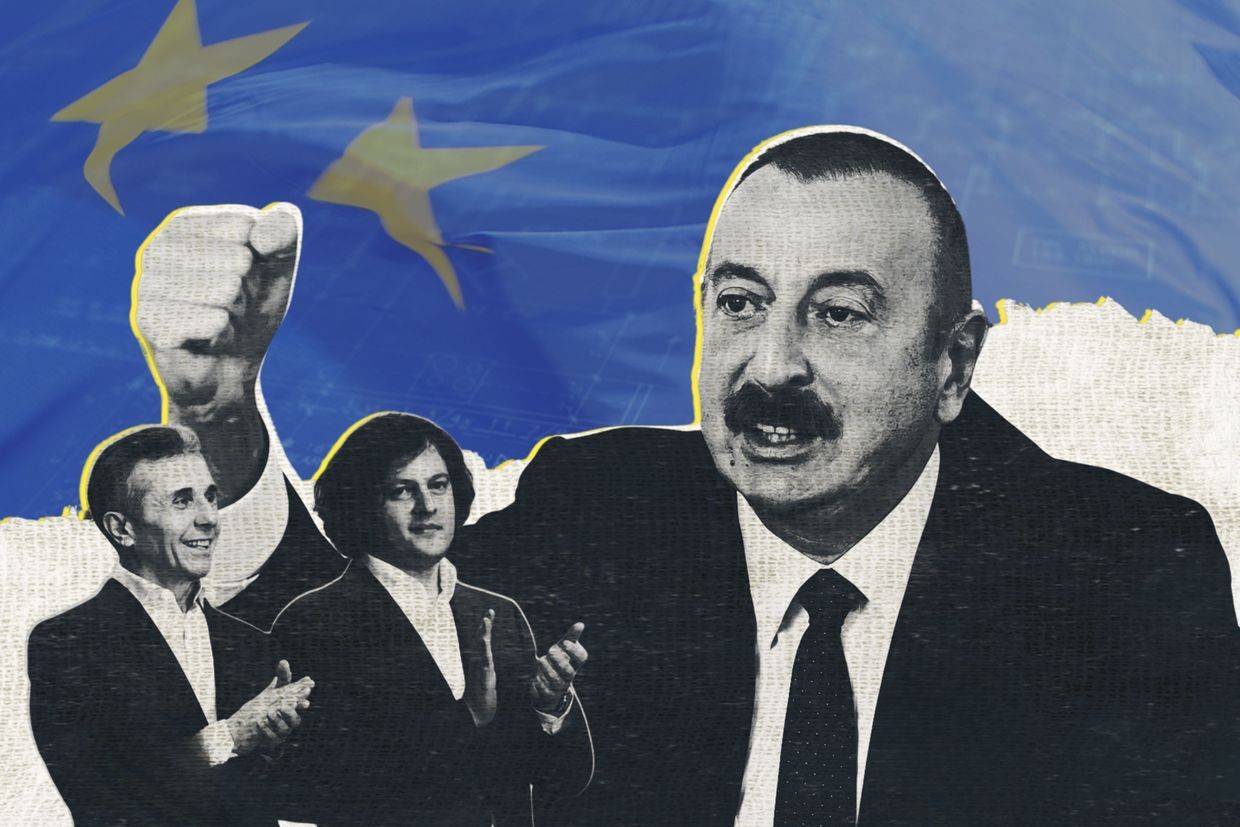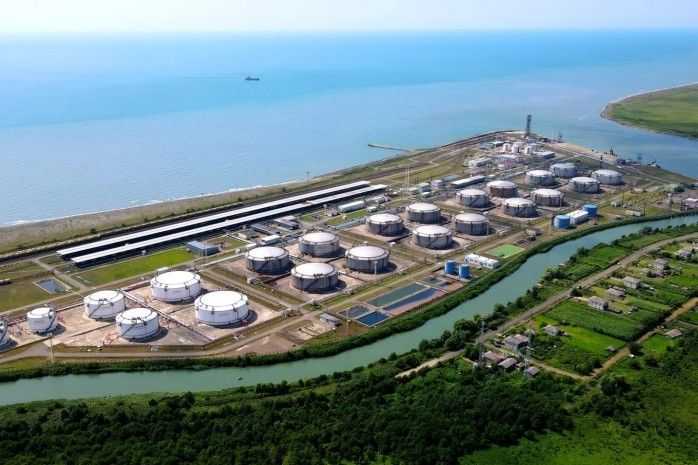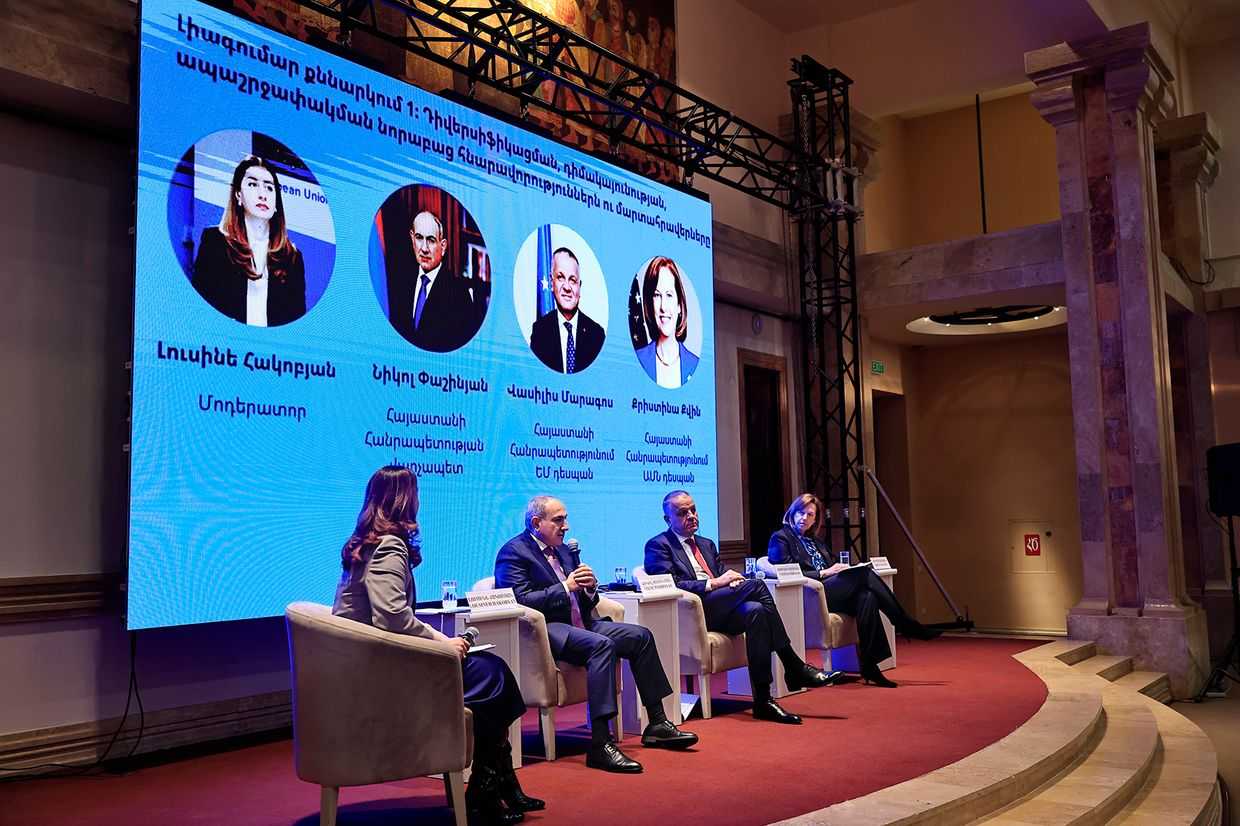Editorial | EU–Azerbaijan relations are a blueprint for authoritarians
The EU looks the other way as Azerbaijan jails journalists and crushes dissent. Officials in Tbilisi are surely taking note.

The appointment of former Estonian Prime Minister Kaja Kallas as the EU’s top diplomat was an important step towards a more resolute stance against Russia’s aggression in Ukraine and a message to authoritarian leaders in the region.
However, Kallas’s recent visit to Baku reveals that the EU continues to struggle in challenging the cynical approaches of the US, Russia, and China with a principled, value-based foreign policy. Instead, the EU has once again compromised its own values, descending from the moral high ground it often claims.
Azerbaijan, under the dynastic rule of Ilham Aliyev since 2003, is among the continent’s worst violators of human rights and press freedoms. Currently, 24 journalists are arbitrarily detained — the highest number since Aliyev’s ascent to power — including the editors-in-chief of two acclaimed dissident media, Sevinj Vagifgizi of Abzas Media and Aynur Ganbarova of Meydan TV.
Official EU communications from Kallas’s visit highlight that ‘the EU is Azerbaijan’s largest trading partner and biggest investor’ — a fact that would suggest that it is Azerbaijan who should align with EU values for the sake of realpolitik.
Yet, it is the other way around.
Economically, this partnership is mutually beneficial but also asymmetrical.
While proponents of the relationship in Europe point to Azerbaijan’s role as a transit route for Central Asian oil and gas, and Italy, Greece, and Bulgaria admittedly rely on Azerbaijani gas, Azerbaijan itself only accounts for roughly 3% of the EU’s total gas imports. For Azerbaijan, hydrocarbons constitute approximately 90% of export earnings and are the lifeblood of the regime’s stability. Critics argue that Europe is effectively substituting one autocratic supplier with another, but EU leaders justify it as a necessary compromise for energy security and a hedge against Russian energy blackmail.
The EU states this is ‘a relationship to grow based on mutual respect’, indicating a troubling respect for Azerbaijan’s red lines, particularly its freedom to ruthlessly suppress the values the EU professes to hold dear.
The EU’s appeasement towards Azerbaijan has surely not gone unnoticed in Georgia, where the ruling regime is likely inspired by the durability of the Azerbaijani regime and its foreign policy successes. The ruling Georgian Dream party may also be combining this with the old Russian diplomatic strategy of sacrificing relations with Western countries on the altar of its authoritarian interests, only to slowly rebuild them once a new status quo is set. This strategy may once again be about to prove effective, as the US looks set to normalise ties with Russia over the graves of thousands of Ukrainians.
Legitimising their rule internationally is surely central to Georgian Dream’s plan to cement an Azerbaijani-style authoritarian system, and normalising ties with the West would be a crucial first step.
There is a broad consensus that Georgian Dream has embarked on a campaign to eradicate political opposition, critical civil society, and independent media — with the director of one of Georgia’s most esteemed media outlets, Mzia Amaghlobeli, remaining in detention. The EU has not recognised the fraudulent October parliamentary elections and has suspended Georgia’s accession process and financial aid — yet, signs of normalisation are emerging.
Last week, EU Enlargement Commissioner Marta Kos, despite threatening possible further sanctions on Tbilisi, also did not exclude the possibility of reestablishing dialogue with the Georgian government.
In March, non-resident ambassadors from Belgium, Cyprus, and Luxembourg presented their credentials to Georgian Dream–elected President Mikheil Kavelashvili — a step that could have been avoided. EU countries have avoided presenting diplomatic credentials to President Aliaksandr Lukashenka in Belarus since the fraudulent election in 2020.
Further evidence that, in the EU’s view, Bidzina Ivanishvili is not nearly as bad Lukashenka is Georgia’s Foreign Minister Maka Botchorishvili’s recent visit to Vienna, where she was received in her official capacity by her Austrian counterpart. Although Beate Meinl-Reisinger’s remarks during the joint press conference were damning, Botchorishvili endured them with her head held high — a small price to pay for the comfort of knowing that an Azerbaijani ‘business-only’ framework could be slowly taking root.
The EU’s reluctance to sever ties with the authoritarian Georgian government is further evidenced by the limited scope of sanctions. While joint EU sanctions were widely known to have been blocked by Viktor Orbán’s Hungary and Robert Fico’s Slovakia, only a handful of EU member states have independently imposed sanctions on disputed officials, corrupt judges, and perpetrators of violence against peaceful protesters and media workers.
As Ganbarova, Vagifgizi, and Amaghlobeli watch this normalisation slowly unfold from their prison cells, the cases of Georgia and Azerbaijan might well prove that this model of authoritarianism is sustainable and can fuel similar solutions elsewhere in the EU’s neighbourhood — or even within the EU itself.









